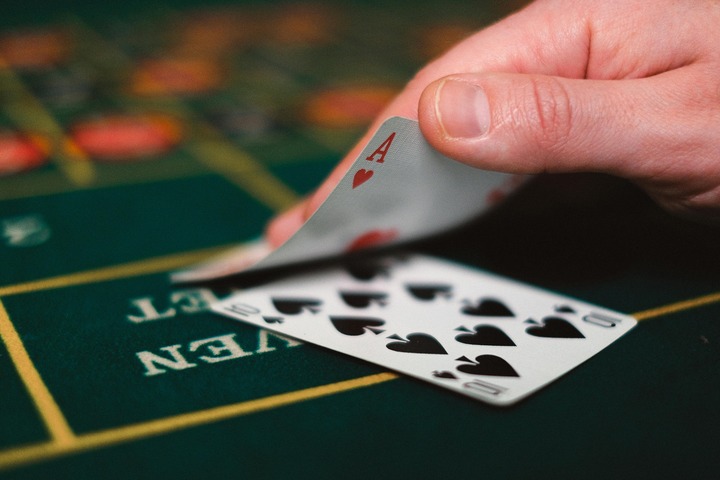
Blackjack has long been considered a game of skill, where decisions made at the table can significantly shift the odds. But in the era of online gambling, not all blackjack is created equal. The two primary formats (live dealer blackjack and RNG (Random Number Generator) blackjack) demand different approaches. Understanding how skill plays out in each environment is essential for experienced players looking to maintain a competitive edge.
One simulates the human experience. The other is purely algorithmic. Both look similar on the surface, but the path to advantage is different under the hood.
The Role of Skill in Blackjack
The basic rules of blackjack don’t change much between formats. The aim is still to beat the dealer without going over 21. Decisions like hitting, standing, splitting, and doubling down remain core elements. However, the level of control a player can exert, and the outcomes of those decisions, differ based on how the game is delivered.
In skill-based games like blackjack, outcomes can shift based on:
- Card counting opportunities
- The speed of the game
- The predictability of the shuffle
- Dealer behavior or tendencies (in live formats)
These variables vary in impact depending on whether you’re playing with a real dealer or facing off against a machine.
Why Live Blackjack Feels Different
Live blackjack mimics the experience of playing in a brick-and-mortar casino. Real dealers shuffle physical cards. Real-time streaming makes the experience feel authentic. And perhaps most importantly, there’s human rhythm. This pacing matters.
In this environment, seasoned players can apply betting patterns and decision trees developed from years of practice. It’s also in live games where the edge feels more real. Even though casinos use multiple decks and auto-shufflers, the live format doesn’t eliminate skill. Instead, it redefines where skill is applied.
Live games introduce subtle cues (timing, facial expressions, manual dealing errors) that can provide a psychological layer to the game. This isn’t true card counting, but it leans toward behavioral reading. In competitive live casino setups, that counts.
And for players who care about immersion and pacing, live games offer a rhythm that resembles traditional gameplay. The few seconds between card draws or the pause before a dealer reveals the hole card give players time to think. This naturally rewards players who understand blackjack theory and know how to apply it under pressure.
A Look Inside Live Casino Games
Live casino games have grown rapidly in the past few years. In 2023, the global live dealer casino market was valued at over $4.2 billion, and that number is projected to grow by 60% over the next five years. This growth reflects not just a trend but a shift in what serious players prefer.
Within live games, blackjack holds a central position. Unlike slot-style RNG games, live dealer tables attract players who care about skill, pace, and human interaction. The presence of real cards, real shuffles, and dealer rotation reinforces the perception of fairness and control.
Live games also often feature betting behind, limited seats, and various table limits, all of which influence how players apply skill. And because every move is streamed, players get a tangible sense of environment that’s otherwise absent in algorithm-driven formats.
This isn’t nostalgia. It’s strategic preference. A player can make better decisions when the game flow feels familiar and less artificial.
The Algorithmic Reality of RNG Blackjack
On the flip side, RNG blackjack is built purely on mathematical randomness. It uses a computer algorithm to simulate card dealing. There are no decks on the table. The entire “shoe” is reshuffled after every hand, making card tracking impossible.
While this might sound like a disadvantage for strategic players, it’s not inherently worse; it just limits the type of skills that can be applied. Since there’s no opportunity to gain an edge through pattern recognition or pacing, players must rely entirely on optimal strategy charts. Every move becomes a math problem.
But this environment does offer a few advantages. The hands are faster. The decisions are cleaner. And for those practicing perfect basic strategy, RNG blackjack can offer consistent execution with minimal distractions. You’re not waiting for a seat or adjusting to a new dealer.
Still, RNG blackjack often comes with variable rules, auto-win bonuses, or side bets designed to change the payout structure. These game modifications aren’t always transparent and can influence player behavior subtly, making strategy less straightforward than it appears.
When Skill Meets Speed: A Quick Comparison
Here’s how the two formats stack up when you break down where skill matters most:
Live Dealer Blackjack:
- Manual dealing allows for a natural pace and strategic decision-making
- Card counting is still mostly impractical, but shuffle patterns may slightly benefit observant players
- Dealers introduce psychological dynamics that can affect player timing
- More immersive, which can improve player engagement and focus
RNG Blackjack:
- Instant reshuffling eliminates any long-term advantage
- Basic strategy is the only edge—deviation almost always leads to losses
- Speed can cause fatigue or mistakes over long sessions
- Lack of realism reduces behavioral signals and rhythm
Both have their place. But knowing how skill interacts with each format can help players choose smarter.
So, Which One Rewards Skill More?
Live dealer blackjack leans toward rewarding skill-driven players, not because it gives more control, but because it feels more real. The timing, environment, and human interaction support deliberate, thoughtful play. In a skill-based game like blackjack, where edges are slim, those factors matter.
RNG blackjack has its benefits, but it’s a cleaner, more robotic environment. It’s fast, efficient, and unforgiving. Mistakes happen quickly. There’s no space to recover through momentum or a mental reset between hands.